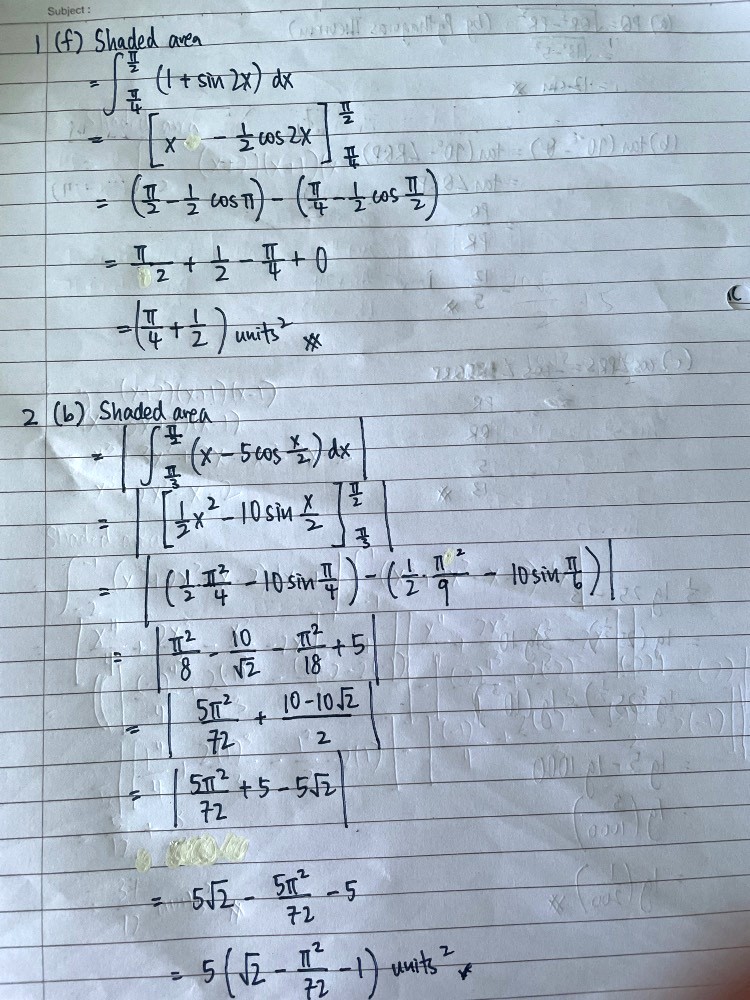HRHRHRHRHR's answer to lana <3's Secondary 4 A Maths Singapore question.
done
1 Upvotes
clear 0 Downvotes

Solutions for questions 1f and 2b. For 2b, note that if the you are trying to find the area of a region below the x axis, you need to take the absolute value or negative of the result you get after performing the standard definite integral steps. I have left my answers in exact form, it should be ok to leave in 3sf form as well.
Date Posted:
1 year ago


Since there is cos(x/2) in the differentiated result, there must be a sin(x/2) in the integrated result. When we differentiate sin(x/2), we get 1/2 * cos(x/2). This looks rather similar to -5cos(x/2) which is what we want to achieve already. We need to multiply by -10 to get from 1/2 * cos(x/2) to -5cos(x/2) so we multiply -10 to sin(x/2). If we were to check back, differentiating -10sin(x/2) indeed gives us the result of -5cos(x/2), so we can write the integral of -5cos(x/2) as -10sin(x/2) + c (but we can drop the arbitrary constant in this case since this is a definite integral).
Keep practising and drilling integration and differentiation and this will soon become very intuitive and you will be able to write it out in 1 step like in my solution!
Leave a comment if you still need help / clarifications!